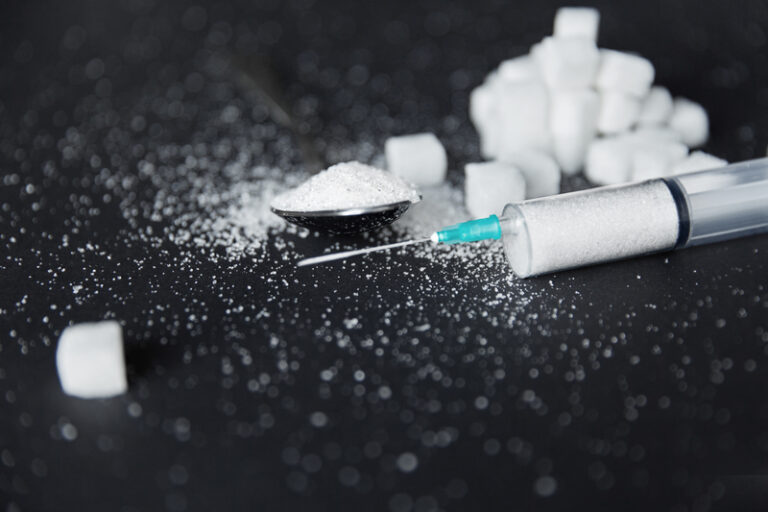When discussing addictions, we think about illegal drugs, certain medications, smoking and alcohol. Rarely do we even think about, much less talk about, sugar. According to research studies, sugar is more addictive than cocaine, heroin, and alcohol! Yet, it is considered “acceptable”. Professor Bart Hoebel of Princeton University Department of Psychology and the Princeton Neuroscience Institute says “Our evidence from an animal model suggests that bingeing on sugar can act in the brain in ways very similar to drugs of abuse.” He says that sugar follows patterns of craving and relapse which are “critical components of addiction”.
Historically, refined sugar co-arose with coffee, tea, distilled alcohol and chocolate. Over time, they have been modified to be stronger, more addictive, more toxic and more injurious than when first consumed centuries or even decades ago. Unfortunately, with sugar, it is so subtle, that most aren’t even aware of it.
Drugs affect the mind, perception and mood – how we think, move and feel. They are generally classified as Stimulants (uppers), Sedatives (downers) or Euphorics. Sugar can be both a euphoric and an upper, but is then followed by becoming a downer. White sugar, similar to ecstasy, opiates, LSD, and methamphetamines, affects brain chemicals creating a false sense of awareness that everything is “okay”, even when it’s not, and they don’t “feel right” when it is withdrawn.
Sugar (and other drugs such as cannabis, opiates, tobacco, meth) works on the same dopamine receptors in the brain that is part of the Pleasure-Reward System. When dopamine becomes imbalanced, it can result in a loss of interest, motivation or willpower, lack of joy, depression, listlessness, ADHD and others. Dopamine is also responsible for addiction with repetitive use of the substances affecting its release.
Sugar, along with tobacco, opiates, benzodiazepine, anti-anxiety drugs, and cannabis contribute to taruine and Serotonin deficiencies. Serotonin is our “feel good” brain hormone that when deficient can result in chronic anxiety, depression, trouble relaxing, insomnia, hyperactivity, afternoon or evening headaches, low stress tolerance, obsessive thoughts or behaviors, fears, panic attacks, and low self-esteem. Deprived of sugar, rats (in a study) had signs of withdrawal similar to the symptoms seen in humans when they stopped smoking, drinking alcohol or using drugs.
According to Professor Hoebel, with large sugar intakes, the brain undergoes neurochemical changes that mimic those produced by cocaine, morphine and nicotine, causing long-lasting effects in the brain that increases the inclination to take other drugs of abuse, such as alcohol and other behavioral changes too.
While not everyone is hard-wired to be a sugar-aholic, sugar has a negative effect on health from many other perspectives. Sugar, is shown to have the same impact on the liver as alcohol. It has been linked to metabolic dysfunction affecting many systems such as the heart, liver, pancreas, brain, adrenal glands, and even the intestines.
In every sense of the word, sugar is just as bad as other addictive substances. We should be taking on the anti-sugar war with the same vehemence as taking on the war against drugs, alcohol and smoking.







